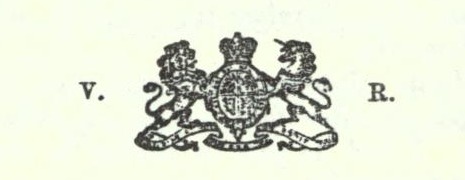[Editor: This is a chapter from The Eureka Stockade by Raffaello Carboni. A glossary has been provided to explain various words and phrases that may be unfamiliar to modern readers.]
LV.
Non sit nobis vanum, mane surgere ante lucem.
I ran up to the stockade to remonstrate with Peter Lalor, for whom I had too much respect to think for one moment, that he had any hand, and much less that he had sanctioned, such suicidal proceedings.
Thanks to the password; I entered within the stockade. It must have been not far from midnight. I found everything comparatively quiet; the majority were either asleep of warming themselves round the big fire. I spoke in German face to face, for the last time, with Thonen. M‘Gill and two-thirds of the Independent Californian Rangers’ Rifle Brigade, in accordance with the avocation expressed in the title, were out “starring” to intercept reinforcements reported on the road from Melbourne. Nealson and his division were off for the same purpose. Was their lot that of Lot’s wife?
Sir Charles Hotham must have possessed the rod of Moses to convert the quartz of Victoria into red coats, as numerous as the locusts that plagued Pharaoh’s land. The Local Court of Ballaarat should recommend His Excellency to carry out the “abolition of shepherding at Sebastopol.”
I asked Thonen to see Lalor. I was answered that Peter, from sheer exhaustion, must rest for an hour or two, and was asleep.
Myself not having closed an eye since Thursday, I felt severely the want of sleep. Is not sabbath-keeping our day’s cant in the English language? Anyhow it must be admitted, in justice to both silver and gold lace, that they take it in good earnest: to keep the sabbath is a holy and wholesome thing for them. I do not remember what was my frame of mind at the time I wished Thonen good night; very probably, “Enough for the day, the morrow will have its own troubles:” at any rate, Thonen gave word to the “outposts,” chiefly Californians to let me pass to my tent: and having thrown myself on my stretcher, with every thing quiet round about, I soon fell asleep.
On the afternoon of Sunday, the following notice was posted up:—
NOTICE.
No light will be allowed to be kept burning in any tent within musket-shot of the line of sentries after 8 o’clock p.m. No discharge of fire-arms in the neighbourhood of the Camp will be permitted for any purpose whatever.
The sentries have orders to fire upon any person offending against these rules.
(By order), T. BAILEY RICHARDS,
Lieut. 40th Regt., Garrison Adjutant.
Source:
Raffaello Carboni. The Eureka Stockade: The Consequence of Some Pirates Wanting on Quarter-Deck a Rebellion, Public Library of South Australia, Adelaide, 1962 [facsimile of the 1855 edition], pages 69-70
Editor’s notes:
non sit nobis vanum mane surgere ante lucem = (Latin) “let it not be vain for us to rise up early before light”; from the Invitatory antiphon in the traditional Breviary used in the Catholic Church during Lent; although normally the phrase uses the word “vobis” (you) rather than “nobis” (us), “non sit vobis vanum mane surgere ante lucem”]
red coats = British soldiers
References:
non sit nobis vanum mane surgere ante lucem:
“Psalm 118 Heth/2: Dark times for the Church and the need for faithful monasticism”, Psallam Domino, 9 March 2012 (accessed 9 January 2013)
“Aldobrandini de Cavalcantibus: Sermones dominicales”, Corpus Thomisticum [see text under: “[88543] Aldobrandinus de Cavalcantibus, Sermones, pars 1 n. 38”] (accessed 9 January 2013)
“The Christian Year — Advent to Pascha”, Saint Bonaventure’s Mission [site by David A. E. Horsman] (accessed 27 January 2013)
“List of chants”, CANTUS: A database for Latin ecclesiastical chants [see entry: “Dom. 1 Quadragesimae: Non sit nobis vanum mane”] (accessed 9 January 2013)
Breviarium Romanum Ex Decreto Sacrosancti Concilii Tridentini Restitutum, Friderici Pustet, Ratisbonæ [Regensburg, Germany], 1888 page 131 [see the 1st column, 7th line from bottom] (accessed 9 January 2013)
Breviarium Romanum, Ex Decreto ss. Concilii Tridentini, Rusand, Paris, 1828, page 2 [see the 1st column, last line; the phrase also appears three times in the 2nd column] (accessed 9 January 2013)
“Antiphonary”, Wikipedia (accessed 9 January 2013)

Leave a Reply